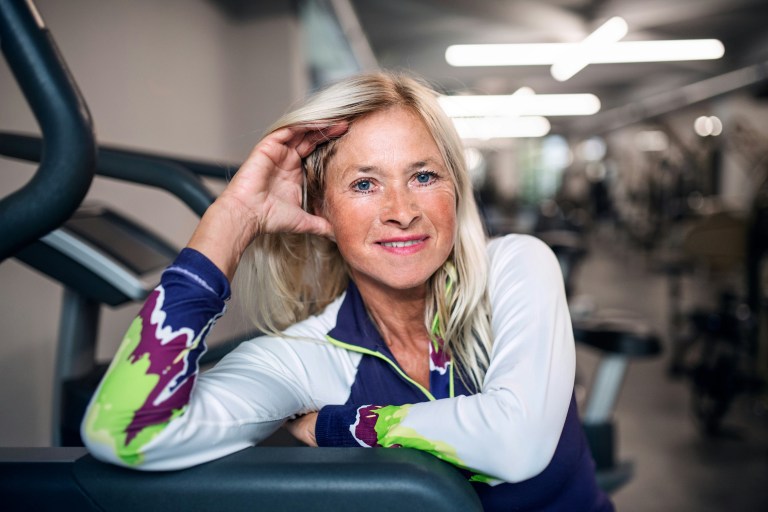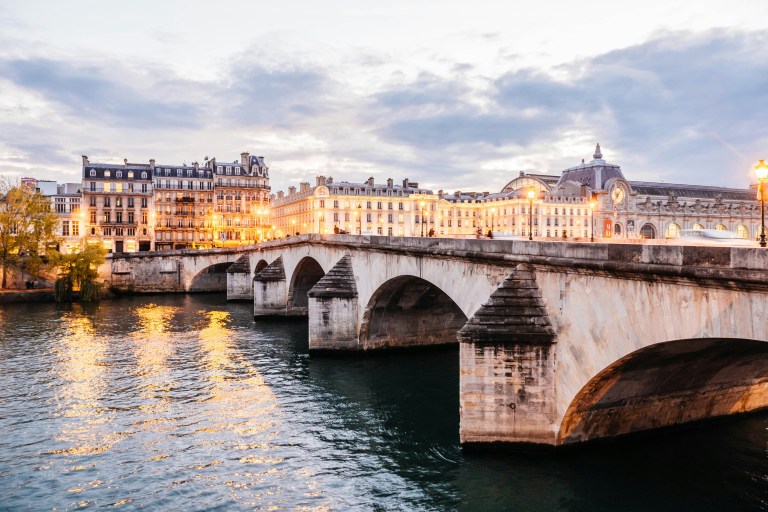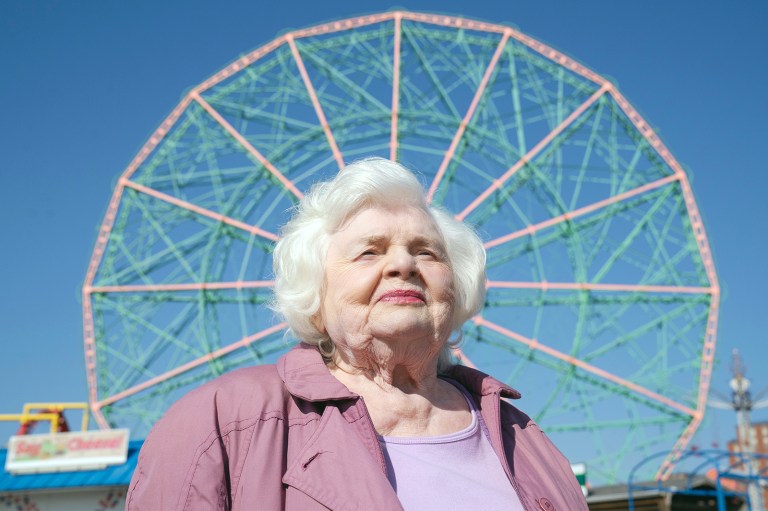
8 Expat Travel Bloggers Give Us The Best Places To Live Abroad
The Washington Post put out stories on the best places to live as an expat weighing things like quality of life and the economy. But, I wanted to take it a step further (and, ya know, skip the metric stuff) and ask travel bloggers who are expats.
I’ve been living in as an expat in Chiang Mai for almost two years. It’s a great place to call home and I love living here. The lifestyle is fantastically chill, the cost of living is low compared to American prices, and there is such a beauty in waking up in a foreign country.
I moved here mid-2012 to work with one of the most inspirational women in the universe, Lek Chailert, and Save Elephant Foundation. Since then, I have fallen in love with the charming little northern Thai city.
The city is a haven for digital nomads (even the New York Times did a story on the influx) and thanks to the low cost of living, makes it a perfect place for people to come and try their hand at expat life.
Sure, publications like The Washington Post put out stories on the best places to live as an expat weighing things like quality of life and the economy. But, I wanted to take it a step further (and, ya know, skip the metric stuff) and ask travel bloggers who are expats.
Where do these travel lovers reside? And, why do their expat cities rule?
Alexandria, Egypt — Family on Bikes
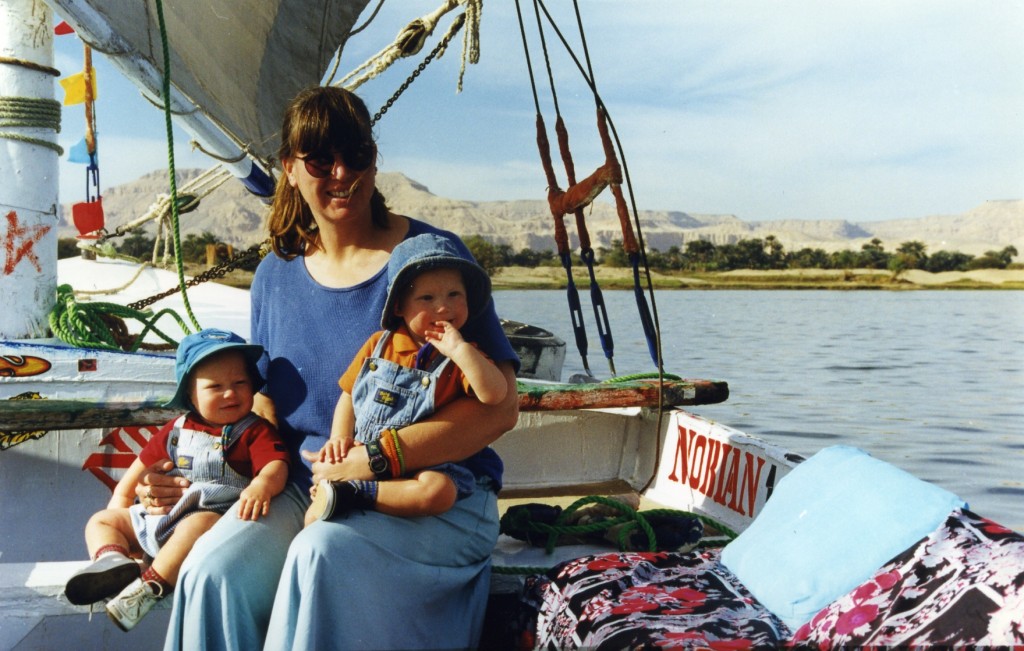
Although we no longer live there, Egypt was a fantastic place to live as an expat. We lived in Alexandria, on the Mediterranean Sea.
My husband and I were both teachers in an international school in Alexandria for a couple of years, so went to the country with a full expat package. Although housing was provided for us, I have heard that it’s fairly easy to find a place to live in the city.
Alexandria was a great place to live because … well, because it’s Egypt. What more needs be said? You want more? Okay then, Alex is right on the sea, so it has clean air and a very European feel — totally different from Cairo. And yet Cairo, with all its wonderfulness, is only a 2-hour train ride away, so we were able to spend plenty of time exploring that city as well.
Alexandria isn’t much on the tourist route because there are no temples there. That said, there are some fantastic sites – my favorite was the Catacombs. What a place! There are many delightful coffee shops and bakeries all along the Corniche (road right along the coast) and in Mansheya Square downtown.
Ubud, Bali, Indonesia — Amber Hoffman, With Husband In Tow
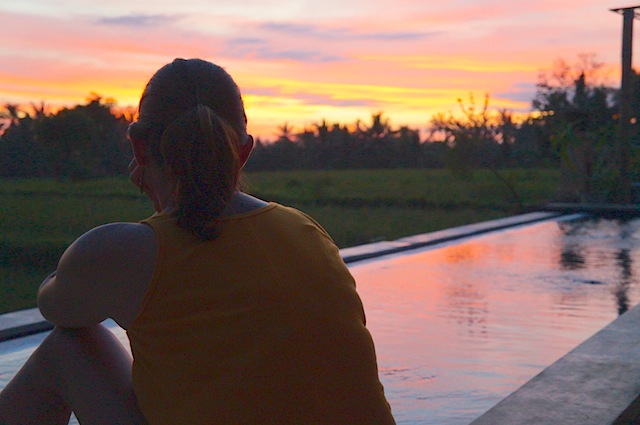
I have always dreamed of living in Bali, but I am not sure why. Even before the Eat, Pray, Love phenomenon, there was something about the word Bali. A connotation of tropical bliss. Of going bamboo. And, that is what I did. I went a little bamboo. Sort of.
When looking for a place to live in Southeast Asia, I always assumed that Bali was out of my price range, with expensive villas or beach front property. A land where tourists rent a four-bedroom luxury house for a few nights and then move on. But, there are plenty of expats living in Bali, and in Ubud in particular. It is becoming a digital nomad haven, anchored by a co-working community called Hubud, just down the road from the Monkey Forest.
I was able to score a three-bedroom house with an infinity pool set amongst the rice paddies, often with stunning sunsets over the palm tree lined horizon. We sometimes rent out a guest room to offset the cost of rent, which is easy to do in a town with so many people coming in and out. My days are spent practicing yoga at either The Yoga Barn or Radiantly Alive, followed by a stop for a latte at Anomali Coffee. After an afternoon that alternates between working a little online, teaching yoga, and taking a dip in the pool, dinner is often at one of the top notch, great value restaurants in Ubud. The wide variety of restaurants is one of the reasons why I settled in Ubud – great Tex Mex at Taco Casa, affordable sushi at Toro Sushi, and the tastiest chocolate fondant cake at Terazo.
Although not a cheap destination in comparison to other Southeast Asia locales, Ubud offers a lot of value for the money. I did not come to Ubud to “find myself” like so many Eat, Pray, Lovers, but I was able to find a quality life away from the hubbub of the big Asian cities, with fresh air, traditional Balinese culture, and entrepreneurial inspiration. In my own way, I have gone a little bamboo.
Dordrecht, The Netherlands — Caitlyn O’Dowd, Olympic Wanderings
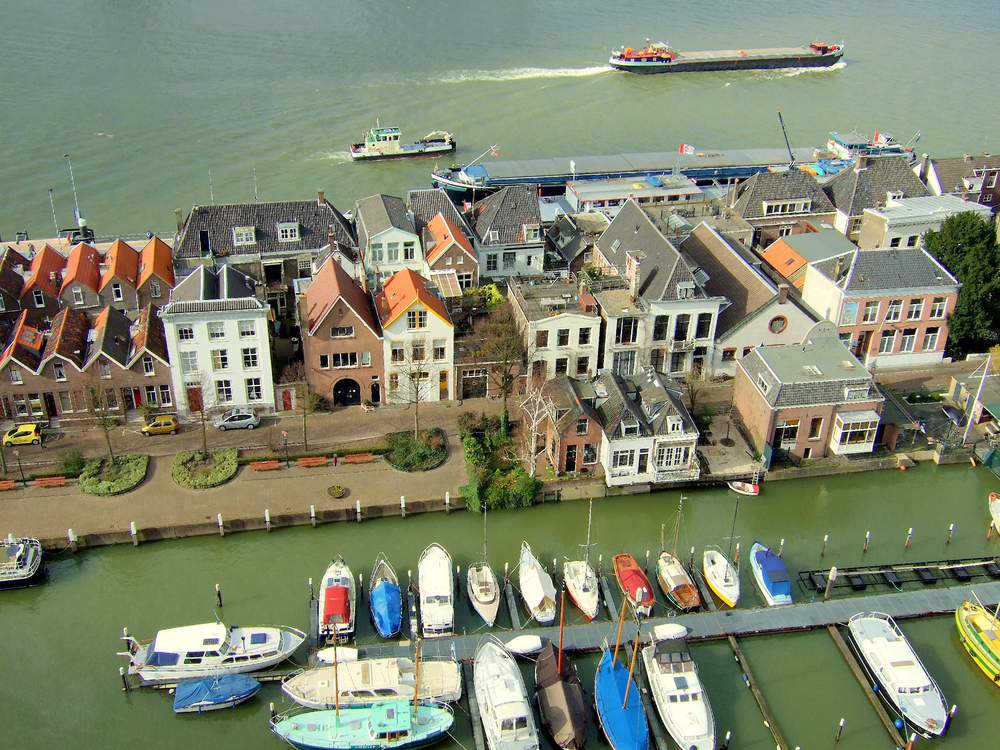
The Netherlands has just the right mix of being foreign without things being just like home (for me it’s Australia but this could apply to any settler society country). English is so widely used and understood that it’s almost as if Dutch has just been invented as some sort of secret language to use when necessary. The country has always been outwardly-focused; they’re completely ingrained in a global economy and have for years traded with foreigners, so they’re used to different cultures and backgrounds. Plus, they’re very liberal and open-minded — you really can’t shock the Dutch, particularly in Amsterdam. They’ve seen it all!
Personally I’ve gained a residency permit as I have a Dutch boyfriend. You don’t need to be married or even show much paperwork here which is a breath of fresh air! The Dutch also offer working holiday visas to nationals from some countries, which can be applied for once you arrive on a tourist visa. Plus, many international companies have their European headquarters in the Netherlands, so many expats come here after being transferred by their company. You are also able to work here on a student visa, and there are a number of excellent universities here which have their programs taught in English.
If you’re wanting to work in customer service and you don’t speak Dutch, your best bet is looking in Amsterdam. Many restaurant and retail staff address customers in English, and the local language isn’t as necessary here. There’s also plenty of international recruitment agencies which can pair you up with work opportunities, again in English. There are also plenty of expat clubs and organisations all through the Randstad area, so you can still play cricket on the weekend or gather to watch the Superbowl with people who ‘get it’ too.
Where to go? I love sitting on one of the terraces at the Groothoofd in Dordrecht. It’s the spot where three major rivers come together and it’s the second busiest tri-river crossing in the world (after Sydney Harbour). On a warm night, you can sit with a Heineken and eat some bitterballen snacks for hours, watching the river cruises and shipping boats head between the North Sea and Germany. It’s true what you hear – everyone loves cycling in the Netherlands. I own two bikes – an old one that I don’t mind getting stolen one day, and another clunky decent one often termed an omafiets; a ‘grandma bike’. We don’t live too far away from Kinderdijk, which is the windmills site on the World Heritage list. On a nice day we’ll cycle there, seeing canals, tulips and cows along the way. A real novelty to me, as an Australian, is how close everything is to the Netherlands. My local station has a direct train to Brussels, and one change can get me to Germany, France, the UK… hey, even as far as Russia! Buy your tickets early and you can have plenty of little weekend getaways for not much at all.
Pyeongtaek, South Korea — Doria Garms, Doria Travels
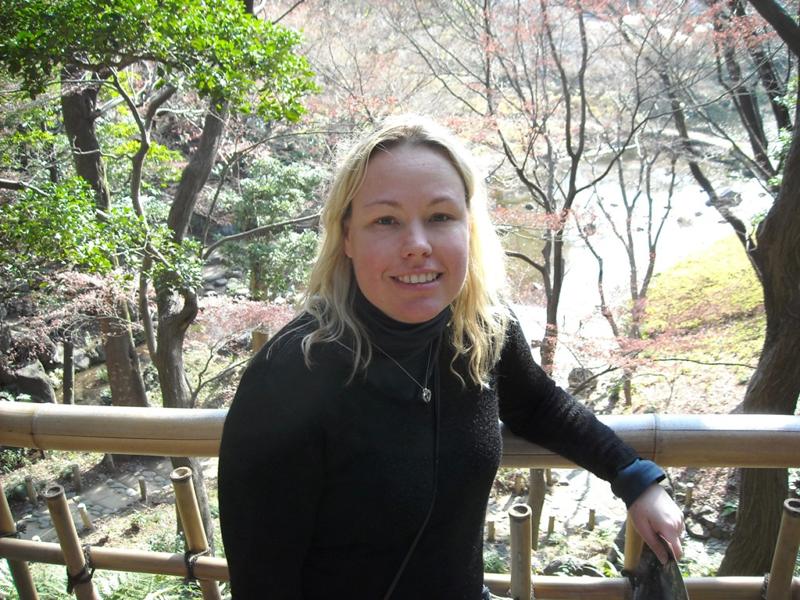
I currently live in Pyeongtaek, South Korea which is about an hour south of Seoul. I live here because my husband is with the United States Army and is stationed at Osan Air Base. We are conveniently located close to a subway station and an express bus terminal. This bus terminal has nonstop buses that will take you directly into Seoul.
I originally came here nine years ago to teach English. I applied to Korea because it was a country in Asia I had never been to. My mother was an English teacher in Vietnam and Thailand, so I wanted to follow in her footsteps.
Pyeongtaek is a great place to live as an expat because you have two US military bases close by, so the language barrier is not so much of an issue, yet you have an express bus terminal with buses that can take you to other parts of the country.
A mountain called Buraksan is famous here with the locals, but not too many people know about it outside of this area. It’s an easy hike with well-groomed trails that wind around rest area and traditional Korean graveyards.
Berlin — Ligeia Smith, Bounding Over Our Steps
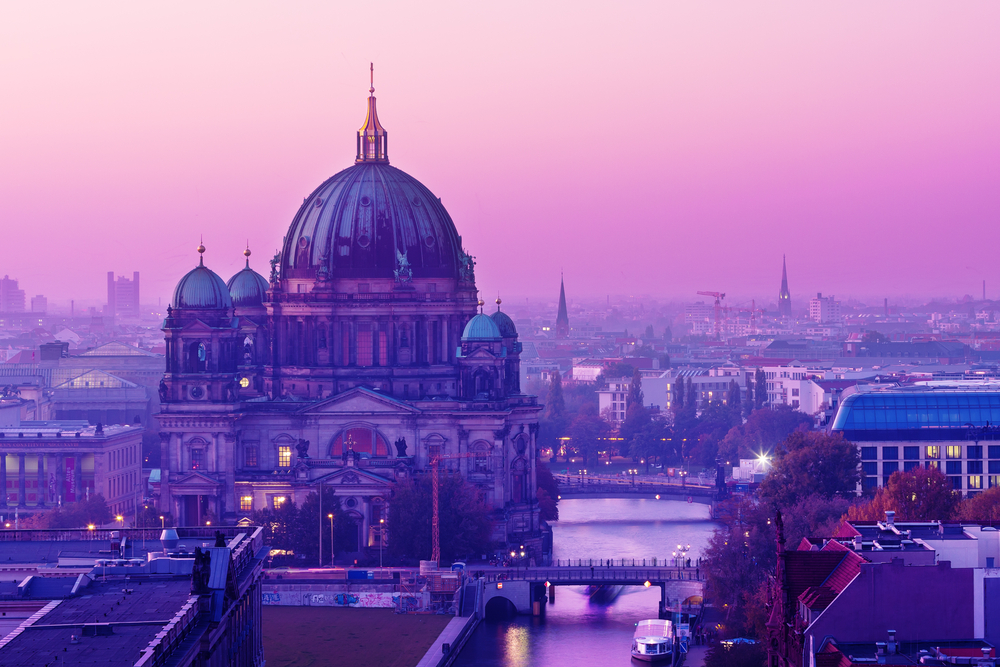
Germany’s northern city of Berlin is an easy place to be an expat. I lived there for three years (2002 to 2005) both volunteering with Holocaust survivors through a German NGO and teaching English to various businesses.
With its famous historical locations, numerous public parks and excellent museums it is easy to see why Berlin is one of Europe’s most visited cities. Berlin’s public transportation connects virtually every corner of the city, making not owning a car surprisingly un-limiting. The Monatskarte (monthly pass) allows you to use the U- and S-Bahn, streetcars and buses. But be careful if you forget to renew your card! Secret transportation police randomly check for passes and those without a proper ticket will have to pay a hefty fine. (Oh and while we’re on the subject, I would also advise against giving the police a false name in hopes to avoid the fine or you may just end up in one of Berlin’s holding cells, like I did.)
With the abundance of Turkish and Lebanese falafel stands it’s relatively easy to be vegan or vegetarian. And if you need a break from sauerkraut and schnitzel, there are numerous restaurants featuring food from around the world, including Japanese, Indian and Mexican. As most restaurants have been “Germanized” though, you still may get a side order of sauerkraut with your meal, as I did once with my bean burrito.
Many of the locals in Berlin are secret and both the patrons and owners would like to keep it that way. So, I considered myself lucky in discovering the New Orleans-style marching band in the basement of Zosch on Wednesday evenings (just off Oranienburgerstrasse). I was so happy when a friend told me about the really neat un-named Russian tea house on 2nd floor across from the Staatsoper Unter den Linden. If you go, have a bowl of delicious borscht for me! And by the way, the best falafels in Berlin are from the Lebanese locals. You can have one of those for me, too.
And, another for Berlin — Adam Groffman, Travels of Adam
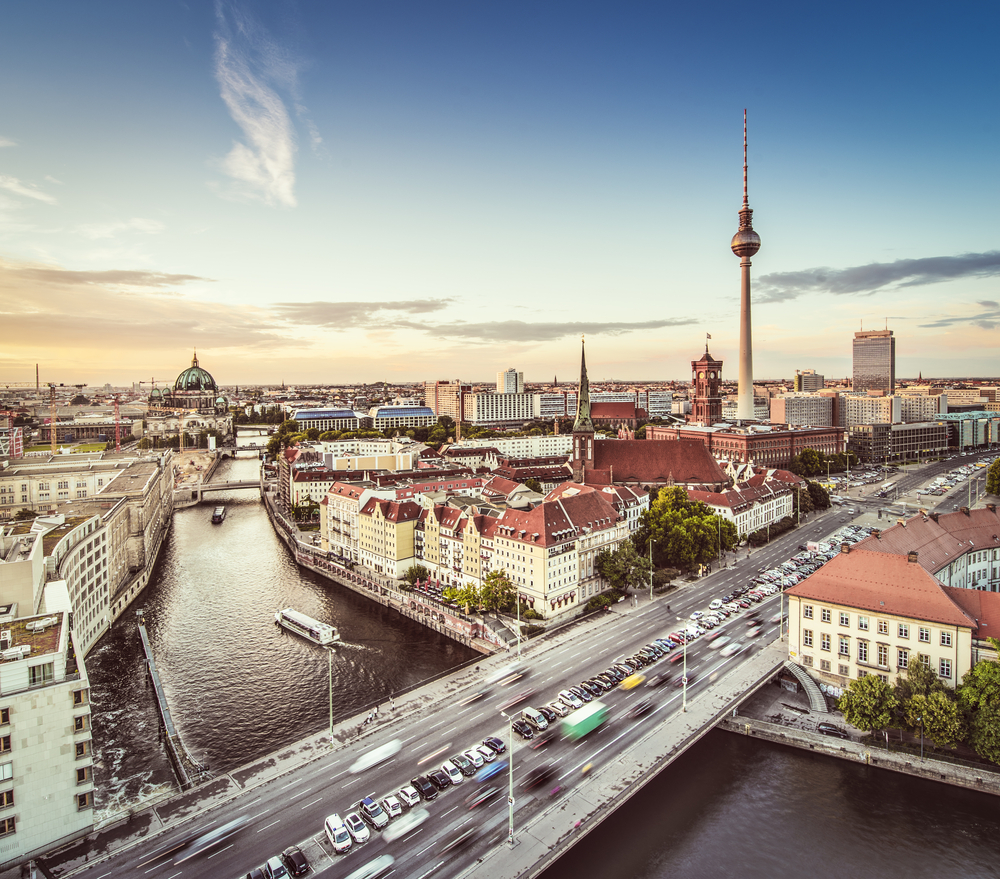
I moved to Berlin in the summer of 2011. It was after 15 months traveling around the world, I showed up in Berlin with very little left of my savings. It was just enough to rent an apartment for a month and see what would happen. Berlin, being the beautiful captor of souls that it is, grabbed me and kept me locked in love. Within a few weeks of my one-month experiment, I’d gotten a job offer and an apartment. After that, the rest was history.
Berlin’s an infectious city — the history, the atmosphere, the people — they’re what keep me here. I like to say that Berlin is the most interesting place in the world right now, at this moment. There’s a lot going on here — new people, new ideas, new art, new everything. I suppose part of that comes from the fact that this is a very old city, one that’s been rebuilt more times than most. As an expat, the city is relatively welcoming. In fact, as an American in Berlin, I feel pretty lucky to be able to live here in Europe. There aren’t many places that make it so easy. With that famous Germany freelance visa, I’m able to live here and do the work that I want to do.
In Berlin, there are new bars, restaurants and cafes opening up all the time. Though there are quite a few old places which have survived the waves of gentrification as well. I like a good mix of the old and the new. The pubs and restaurants which seem like they’ve been here forever are really quite special. But then the new trendy, artsy, creative places that pop up – they’re a lot of fun too. For that authentic bit of Germany, I like to go eat at Tiergarten Quelle when I can. But when I want to recommend something very Berlin (“new” Berlin), it’s usually places like Mein Haus am See or the über-cool labyrinth at Wilde Renate (though that is allegedly closing soon so that something undoubtedly more cool can open it’s place).
Almuñécar Spain — Alan Wagoner, Wagoners Abroad
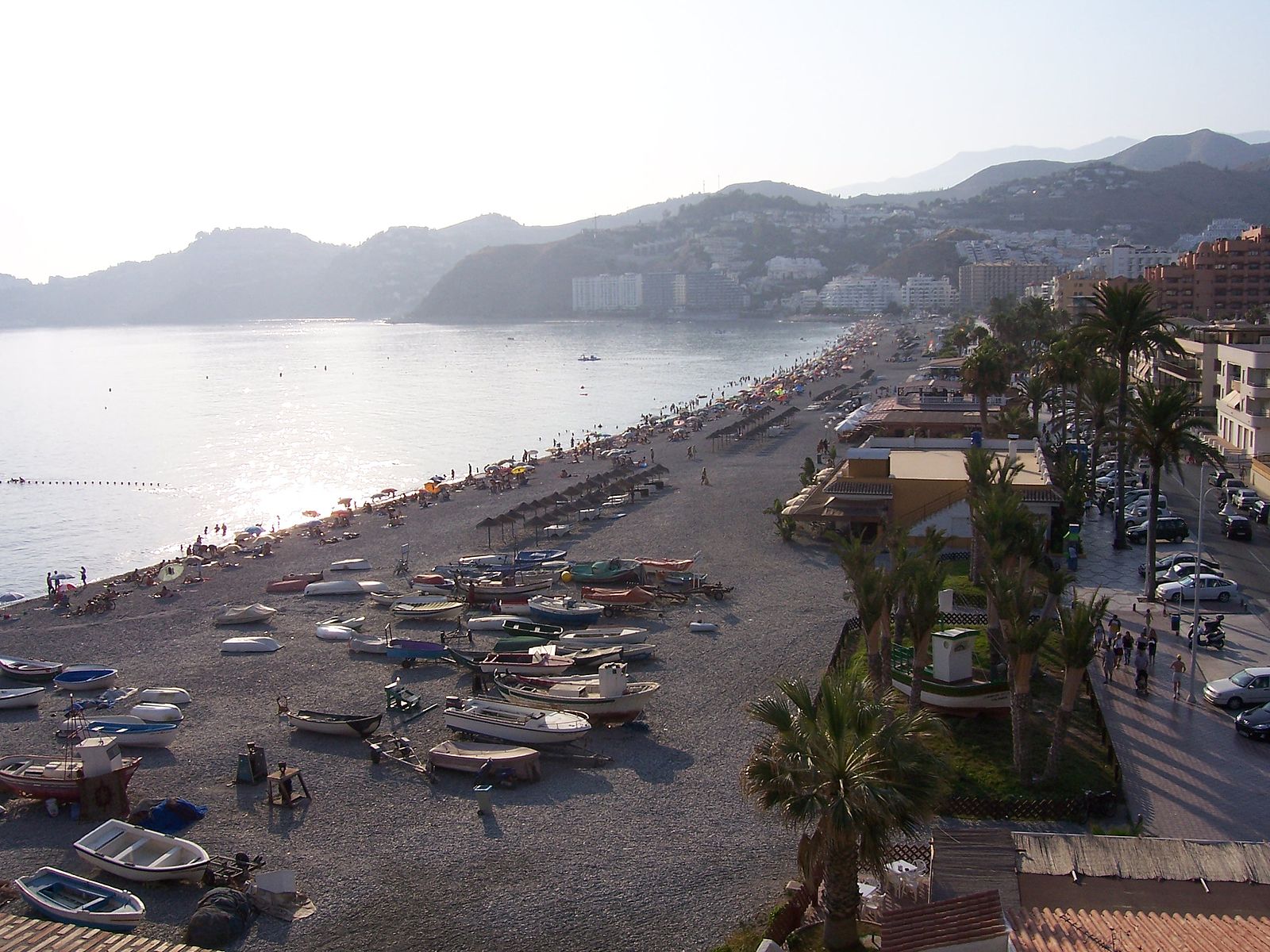
We live in Almuñécar Spain. It’s not a big surprise if you’ve never heard of it. It’s an Andalusian town on the Mediterranean approximately an hour south of Granada.
Once we knew that Spain was our destination, we drove the entire coast from just south of Valencia, all the way to Málaga (roughly 500 miles). The biggest requirement was to be on the Mediterranean. We figured that a small town would best suit our needs due to our housing budget, and lifestyle requirements, and Almuñécar fit the bill perfectly.
Almuñécar is just the right size for a family that’s looking to enjoy the low-key Spanish culture. There is a beautiful old world section of town that is pedestrian only. It’s relatively close to a major airport (good for those European getaways), the people are very friendly and helpful, and there’s even a castle (and who doesn’t like castles?)!
Enjoying a nice glass of Rioja (Spanish red wine) while watching the sunset is highly recommended. There are plenty of restaurants along the beaches that will provide great food, great drinks, and stunning views. Don’t forget the tapas! Check out the daily municipal market in the morning to see excellent selections of produce, meats, and freshly caught fish. The Friday Market is also a great place to find locally produced items. If you like to people watch, head over to the Plaza de la Constitución, grab a great cup of coffee from any one of the cafés, and watch the locals and tourists do their thing. Depending on the time of day, you may see the occasional musician or even a flamenco dancer.
Hong Kong – Beth Williams

After visiting Hong Kong while I was studying abroad in Japan, I knew it was a place I wanted to live. So upon graduation I boxed up my belongings and moved across seas a mere two weeks later to begin teaching English.
After getting a degree in Japanese language and culture studies, a lot of people ask me ‘Why Hong Kong?’ Well, my fiancé is originally from Hong Kong so I thought that moving there would be a great way to experience the culture, learn some Cantonese, and get to know his family before we get married.
Hong Kong is the perfect introduction to Asia for most westerners. As a previous British colony, HK is very modern and westernized. While you can still find a lot of Chinese history and culture here, it is the perfect blend of East meets West which makes it less intimidating to foreigners. There is a huge network of expats here from around the world, the quality of life here is high and you’ll find Hong Kong offers a majority of the comforts from your home country.
There are so many great places to visit in Hong Kong, but people rarely burst out of that tourist/expat bubble and only experience a small fraction of what Hong Kong has to offer. A lot of people come here solely for the food, and that’s okay too, but my advice? Don’t eat where the guidebooks recommend. Sure, they may be tasty but they also will be almost five times the price of a normal meal. If you want to eat somewhere really good, it’s a good idea to find a shop filled with a lot of locals. It’s even better if there’s a long line out the door, as Hong Kongers love to queue.
For more advice on visiting or moving to Hong Kong, visit Besudesu Abroad or see my guide ‘You Asked, I Answered. Answering Your FAQs About Moving to Hong Kong’. To get an even better picture of Hong Kong, be sure to check out my new free ebook Hong Kong in 60 Photos.
Martinique, West Indies — Alyssa James, Alyssa Writes
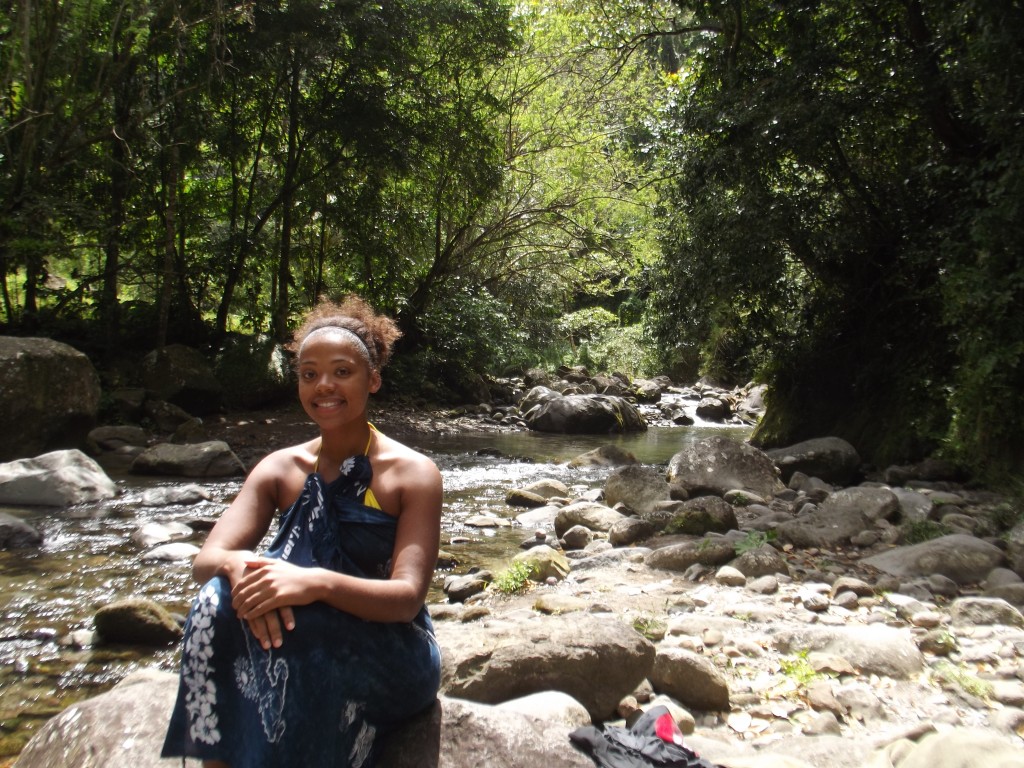
I lived in Martinique, an island in the French West Indies, for two years. The first year, I lived on the south of the island in Sainte-Anne, which is renowned for its beaches, particularly Les Salines, as well as the Club Med. The second year, I lived in the north in La Trinité, which has surfing, black sand beaches and is near Mont Pelée – a volcano that destroyed most of the north of the island in 1902.
After university, I wanted to live abroad in France to improve my French and learn more about the culture. When I found out that the program I was on allowed you to live in French Overseas Departments, I thought Why wouldn’t I want to spend a year in the Caribbean?! I chose Martinique because I had studied a lot of the post colonial scholars and authors that had come from there – Frantz Fanon, Aimé Césaire, Patrick Chamoiseau, and so on — and I felt that Martinique had an interesting history and social dynamic that I would enjoy uncovering.
Martinique is a great place to live as an expat because it’s a Caribbean island that has all of the food, beautiful beaches, rivers and mountains that one would expect from the region, but with the infrastructure of France so it has a stable economy and less crime. It’s also a small place, so if you make an effort you can really get to know your neighbours and in turn, the traditions and customs of the island. I learned to cook a lot of Martinican dishes, was able to grow my own food, camp on the beach, and got to be a part of lots of celebrations; it was very eye opening.
There is a restaurant called Le Point de Vue, which is in Sainte-Marie. It serves up some of the most delicious colombo (Martinique’s national dish), though most of their food is amazing. It’s just off the main road, and you could drive right passed it if you didn’t know it was there. There are quite a few waterfalls in Martinique, but there is one very well hidden one in Le Carbet. You have to walk up the river in the center of town for an hour or so but when you arrive it is just you, the trees and a waterfall. Oh yes, a man named Alex lives out there in a hut, but he’s very friendly!
